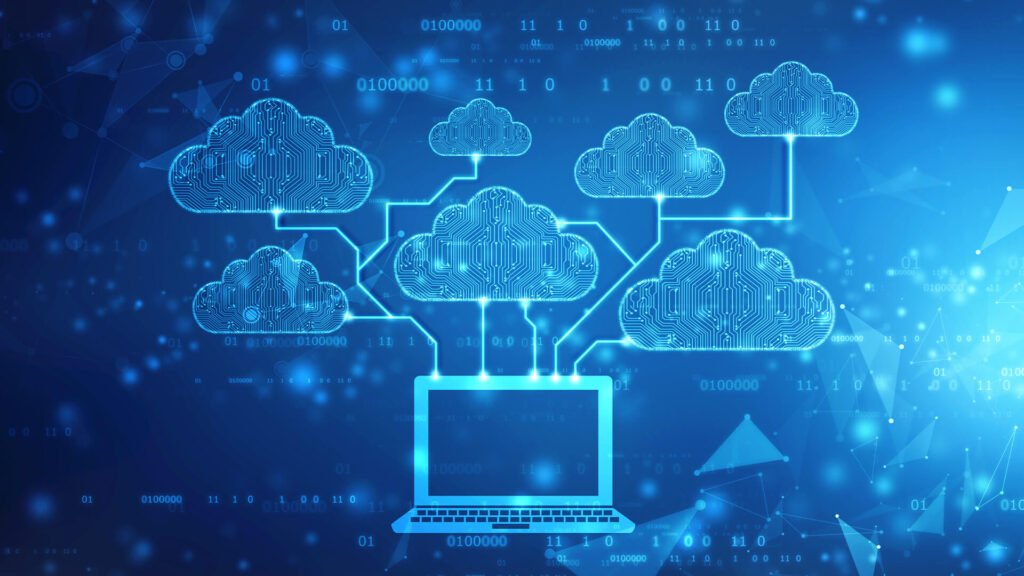How AI is Transforming Cloud Computing and What Hyperscalers are Doing About It
A Comprehensive Guide to the Impact and Opportunities of AI on Cloud Services, Infrastructure, and Applications

Artificial intelligence (AI) is one of the most disruptive technologies of the 21st century, impacting various domains and industries. Cloud computing, which provides on-demand access to computing resources and services over the internet, is also undergoing a major transformation due to AI. In this article, we will explore how AI is transforming cloud computing, and what hyperscaler cloud companies, such as Amazon, Microsoft, Google, and Alibaba, are doing to leverage AI for their cloud offerings.
How AI is Transforming Cloud Computing
AI is transforming cloud computing in two main ways: by enhancing the capabilities and performance of cloud services, and by creating new opportunities and challenges for cloud users and providers. Some of the ways AI is transforming cloud computing are:
AI-powered cloud services: AI is enabling cloud providers to offer more intelligent and customized cloud services, such as natural language processing, computer vision, speech recognition, machine learning, and data analytics. These services can help cloud users to automate tasks, gain insights, and improve decision making. For example, Amazon Web Services (AWS) offers a range of AI services, such as Amazon Lex, Amazon Rekognition, Amazon Polly, Amazon Comprehend, and Amazon SageMaker, that allow users to build conversational interfaces, analyze images and videos, synthesize speech, extract meaning from text, and train and deploy machine learning models.
AI-powered cloud infrastructure: AI is also enhancing the efficiency and reliability of cloud infrastructure, such as servers, storage, networks, and security. AI can help cloud providers to optimize resource allocation, reduce costs, improve performance, and detect and prevent anomalies and threats. For example, Google Cloud uses AI to optimize the cooling systems of its data centers, reducing energy consumption by 40%. Microsoft Azure uses AI to monitor and troubleshoot its network, reducing downtime and latency. Alibaba Cloud uses AI to enhance its security capabilities, such as detecting malicious activities, preventing data breaches, and responding to incidents.
AI-powered cloud applications: AI is also creating new possibilities and challenges for cloud applications, such as web, mobile, and enterprise applications. AI can help cloud developers to create more engaging and personalized user experiences, improve functionality and usability, and leverage data and analytics. For example, Netflix uses AI to provide personalized recommendations, optimize streaming quality, and generate content. Uber uses AI to match drivers and riders, predict demand and prices, and optimize routes. Salesforce uses AI to enhance its customer relationship management (CRM) platform, such as by providing predictive analytics, intelligent automation, and natural language processing.
What Hyperscalers are Doing About AI and Cloud Computing
Hyperscalers are cloud providers that have massive scale, reach, and resources, and that dominate the cloud market. The four major hyperscalers are Amazon, Microsoft, Google, and Alibaba, and they are all investing heavily in AI and cloud computing. Some of the strategies and initiatives that hyperscalers are pursuing to leverage AI for their cloud offerings are:
Building AI platforms and ecosystems: Hyperscalers are building AI platforms and ecosystems that enable users to access, develop, and deploy AI solutions on the cloud. These platforms and ecosystems provide tools, frameworks, libraries, APIs, and services that support various AI tasks, such as data processing, model building, training, testing, and deployment. For example, AWS has AWS AI, which provides a suite of AI services and tools, such as Amazon SageMaker, AWS DeepRacer, and AWS DeepLens. Microsoft has Azure AI, which provides a comprehensive set of AI services and tools, such as Azure Machine Learning, Azure Cognitive Services, and Azure Bot Service. Google has Google Cloud AI, which provides a range of AI services and tools, such as Google Cloud AutoML, Google Cloud Vision AI, and Google Cloud Dialogflow. Alibaba has Alibaba Cloud AI, which provides a variety of AI services and tools, such as Alibaba Cloud Machine Learning Platform for AI, Alibaba Cloud Image Search, and Alibaba Cloud Chatbot.
Developing AI hardware and software: Hyperscalers are also developing AI hardware and software that enhance the performance and efficiency of AI workloads on the cloud. These hardware and software include specialized processors, chips, systems, frameworks, and algorithms that are designed to accelerate AI computation, reduce power consumption, and improve scalability. For example, Amazon has AWS Inferentia, which is a custom chip that supports high-performance inference for machine learning models. Microsoft has Azure Brainwave, which is a hardware architecture that enables real-time AI on the cloud. Google has Google Cloud TPU, which is a custom processor that delivers high-performance machine learning on the cloud. Alibaba has Alibaba Cloud Hanguang 800, which is a proprietary AI chip that boosts the speed and efficiency of machine learning tasks.

Driving AI innovation and research: Hyperscalers are also driving AI innovation and research, by collaborating with academia, industry, and government, and by supporting open source and community initiatives. These collaborations and initiatives aim to advance the state-of-the-art of AI, address the challenges and opportunities of AI, and foster the development and adoption of AI solutions. For example, Amazon has AWS AI Lab, which is a research center that focuses on AI applications and challenges, such as computer vision, natural language processing, and reinforcement learning. Microsoft has Microsoft Research AI, which is a research division that pursues breakthroughs in AI, such as deep learning, computer vision, and natural language processing. Google has Google AI, which is a research organization that conducts fundamental and applied research in AI, such as machine learning, natural language processing, and computer vision. Alibaba has Alibaba DAMO Academy, which is a research institute that explores the frontiers of AI, such as machine intelligence, computer vision, and natural language processing.
Conclusion
AI is transforming cloud computing, by enhancing the capabilities and performance of cloud services, by creating new opportunities and challenges for cloud users and providers, and by driving innovation and research in AI. Hyperscalers, such as Amazon, Microsoft, Google, and Alibaba, are investing heavily in AI and cloud computing, by building AI platforms and ecosystems, by developing AI hardware and software, and by collaborating with academia, industry, and government. AI and cloud computing are complementary technologies that have the potential to create significant value and impact for businesses and society.





